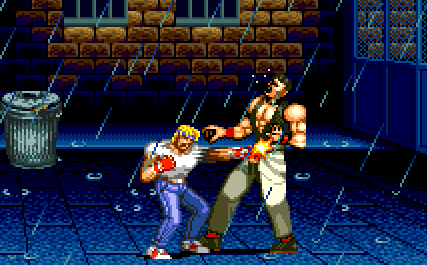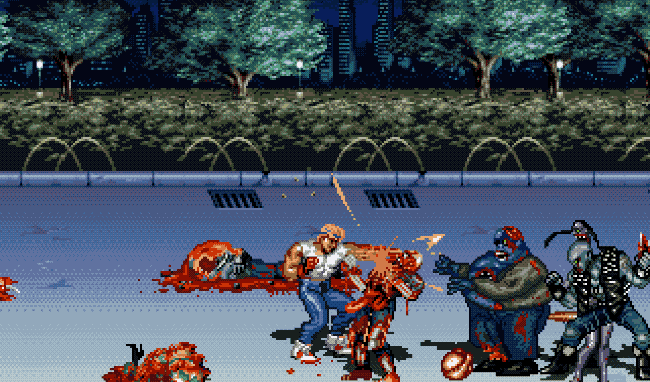get these nets
Veteran
rest of the songs are on yt
======================================
What Eric B. & Rakim Think About the 'Follow the Leader' Jazz Covers Album
9/24/2019

David Corio/Michael Ochs Archives/Getty Images
Eric B. and Rakim
One of the most revelatory moments on the Netflix documentary series Hip-Hop Evolution (now streaming in its third season) transpires during the season 2 episode "The New Guard." In a rare interview, legendary MC Rakim cites John Coltrane as the chief catalyst behind his own distinctive flow as a rapper -- or a "microphone soloist," as he's declared on wax with longtime DJ/producer Eric B.
A year later, the Microphone Fiend would see his sophomore classic with Eric B., Follow The Leader, hit No. 1 on a Billboard chart 31 years after its initial release. But it didn't top a hip-hop chart. Rather, an instrumental reworking of the entire LP by Jonathan Hay, Mike Smith (who comprise the production duo Smith & Hay) and renowned New York saxophonist/Concord recording artist Benny Reid topped the Jazz Albums chart. It's an incredible fusion of styles that brings together everything pure and innovative about the spiritual knot between jazz and hip-hop over the last 30 years.
The album spent four non-consecutive weeks perched at No. 1 on Billboard Jazz Albums chart, dethroning Michael Bublé's Love. This exceptional experiment's chart success has already yielded some pretty substantial fruit for its creators, as they signed a worldwide deal with veteran hip-hop distributor Fat Beats to get Follow The Leader on vinyl, CDs and cassette, including a Japanese edition of the album that will feature exclusive remixes of "Microphone Fiend" and "Follow The Leader."
Additionally, as reported in Forbes, a vp from the Recording Academy let them know that Follow the Leader is being considered for a place on the best instrumental album ballot in jazz for the next ceremony. The music is also getting shopped around for placement in film and television.
Billboard had the opportunity to catch up with the recently reunited duo of Eric B. and Rakim -- the latter has his long-awaited autobiography Sweat The Technique coming out Sept. 24 -- to discuss this unique tribute to their hip-hop masterpiece and how jazz has always been the base root of their game-changing approach to rap music.
How much did jazz play a role in your household growing up? Was there a big collector in your family or any musicians?
Rakim: Jazz was the flow of my youth. The house was filled with all types of music when I was growing up.... the soul, funk R&B soundtrack like Cooke and Green, Marvin and Etta, MJ and The O'Jays...
Eric B: I'm from Queens, so I'm automatically a Louis Armstrong guy. And the way he played and the stuff he did was just groundbreaking. Cab Calloway was big for me, too. Actually, I lived down the block from Louis Armstrong in East Elmhurst, Queens. Our neighborhood was great. It was like watching dinosaurs walk among us. You'll see Frankie Crocker, you'll see Willie Mays and Muhammad Ali walking around. Thinking about it now, it's just amazing to think these were the guys who were just the neighborhood cats. As kids, we'd play touch football with Muhammad Ali. Actually, the house where they firebombed Malcolm X was right by me. And Ali used to be at that house and we'd play over there all the time. That house still stands to this day. Tom Seaver lived near me as well, and he was one of the nicest guys you'd ever wanna meet. I remember his sister lived on Ditmars Blvd. at 94th Street. We used to go to that house every day and ring the doorbell just to see Tom Seaver.
On Hip-Hop Evolution, you cite John Coltrane as a major inspiration for your lyrical delivery and cadence. What was it about the way Trane played his tenor that helped to provide the eureka moment for you as an MC?
Rakim: When I sat down to write, it was Coltrane that guided my flow. Hearing him bend bars and add techniques to his tracks that seemed impossible to play in a physical realm. That's what I wanted my voice to sound like and that's the inspiration I took into the booth.
Rakim, how did you come into calling yourself the microphone soloist and the microphonist, as though you were coming from the standpoint of a musician as opposed to a rapper or MC?
Rakim: I always view my voice as an instrument. I choose the content of my words carefully to convey the message and story I want to get across, but I also pay attention to how the syllables, intonation and emphasis are an accompanying rhythm with the music I'm flowing over. How the words fill the spaces on the melodies and how you can push the boundaries a little...that all comes from studying jazz.
Eric B: Rakim broke new ground. But we'd talk about his next moves first and he'd say, 'Eric, how do you think this sounds?' And I just pushed him and told him, 'Man, do what you wanna do.' His rhyme skills and styles were above the rest of 'em. You gotta remember, everybody else was rhymin' talking about hip to the hop and all these ABC rhymes. That's not in any way trying to downplay them, because they showed us the way to make money and be in rap music, all the guys that we followed. But we also set our own footsteps and put our own footprint on the music.
What were your initial thoughts when you first heard the jazz version of Follow the Leader?
Eric B: The publishing company called to talk about a potential jazz project and this and that. But, you know, when you get calls from them it's like, 'Okay, I heard this one before.' But being able to actually get the project and listen to it, I mean... let me tell you, I couldn't have done a better job myself and I created the original album (laughs). It's a great body of work, and all the guys should be so proud of themselves. The simple way to put it is that life imitates art, and art imitates life, and it's all coming around full circle.
Rakim: I'm having a great moment being able to look back at over three decades in hip-hop and count all the blessings that continue to come from the music. Going on tour with Eric, putting down my thoughts and memories on the pages of a book and hearing our music faithfully but cosmically re-arranged in that jazz style...and then have that shoot to No. 1? You got to take a minute, step back and take it all in.
My favorite aspect of this entire story is saxophonist Benny Reid and how he essentially followed the leader, so to speak, in terms of how he approached his performance on this album. He's essentially standing in as Rakim, and I feel through his playing he's broken some kind of cosmic code. How did it feel, from your standpoint, to hear Follow the Leader in that context?
Rakim: It was like hearing the humming tones in my head out loud and on wax for the first time. My flow starts as rhythms and harmonies and only then do I choose words that fit.
Eric B: It should also be known we had live instruments throughout our whole Follow the Leader album. What we did was took the live instrument we wanted, sampled it, and then ran it back. We'd run it through one time, sample it, and then have it as a template and trigger it to make it sound like a sample. Patrick Adams was the guy who taught us any and everything about sound, equipment, stuff like that. He was our go-to guy. He was one of those guys who gets equipment even though he's never seen or used it before. Patrick Adams would say, 'Hey Eric I'm going to lunch, I'll be right back.' But when he came back, you realized he was at the music store and had mastered a piece of equipment he'd never seen before in his life!
The lost Miles Davis album Rubberband knocked Follow the Leader out of the top spot on the Billboard jazz charts, which you cannot be mad at. Miles was still very much alive when you and Eric were making Paid In Full, Follow the Leader and Let the Rhythm Hit 'Em, and he was such a big fan of new music and even began moseying his way into hip-hop before his death working with Easy Mo Bee on his final studio album Doo-Bop. Did you ever hear about Miles being a fan of what you guys were doing or did he ever reach out to you directly?
Rakim: When Doo-Bop came out there were some rumors he had been listening to us among others, but I hadn't heard directly that Miles was a fan. We've been blessed to be approached by a lot of musicians... jazz, pop, rock, soul, even classical. I don't do a lot of features and collabs but if it's original and pushes culture and consciousness, sometimes it inspires.
What's your takeaway from this surprising turn of events with regards to how your music has evolved in the last 30-odd years?
Rakim: When this band came together to use my voice and flow as inspiration and take it back to a jazz instrumentation? That's a full 360 along a cypher. It's almost too perfect.
Eric B: We laugh about it every day. We can't believe it's been thirtysomething years since we released Follow The Leader, only to have it become a No. 1 hit record on something that we started doing in 1988. It's an amazing experience, a humbling experience. We're both humbled by this experience.[/QUOTE]

![1296334[5].jpg](https://imgprod65.hobbylobby.com/sys-master/migrated/h10/h4a/h00/9231905816606/1296334[5].jpg)




